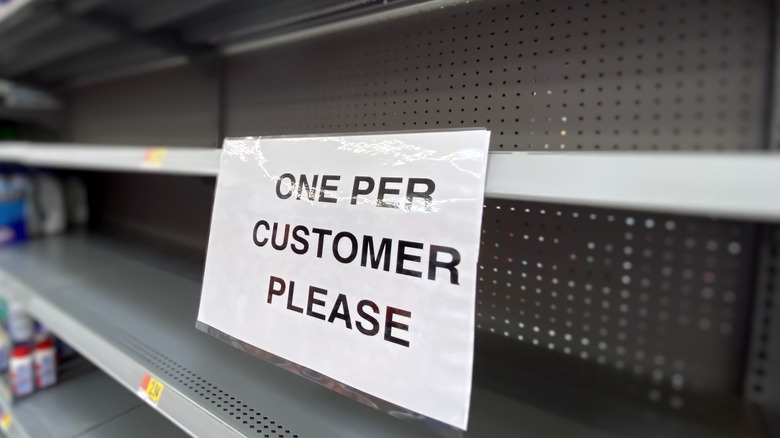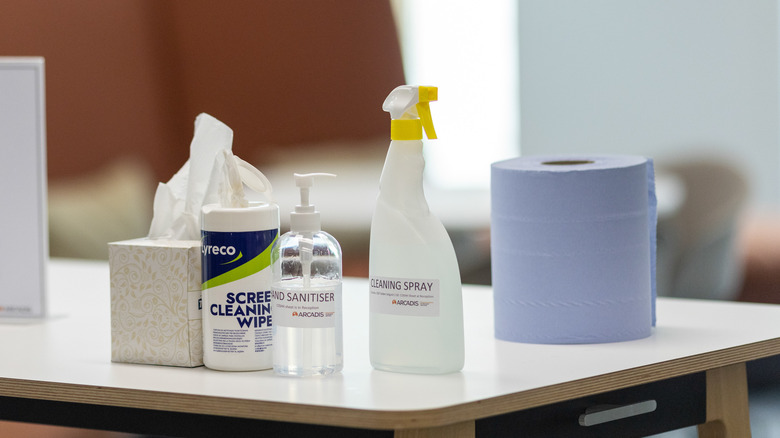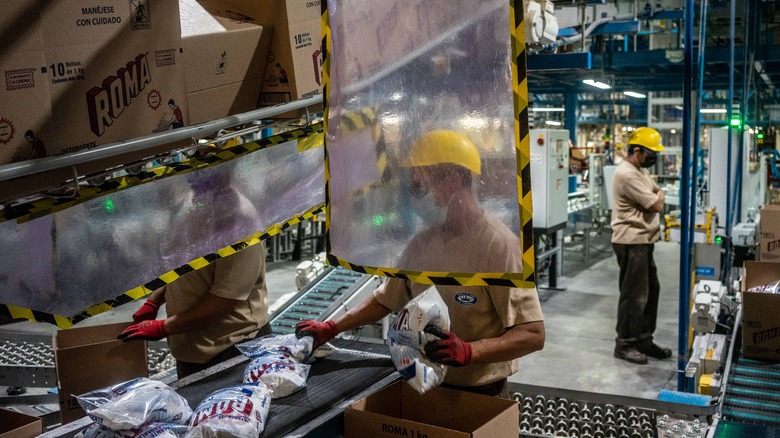Will The Delta Variant Cause Another Cleaning Product Shortage In 2021?
Until the spring 2020, there was one thing many of us could agree on — for the most part, when we went to a store like Target, Costco, or Walmart to buy a cleaning staple like bleach or ammonia, we could get it. But that all changed after the coronavirus pandemic came along. Particularly during the early days of the pandemic, household items like Clorox bleach, Lysol sprays, bottles of Pine Sol, and cleaning wipes were nigh impossible to track down and when they did appear, we were forced to treat the bottles like rare finds whose distribution needed to be limited so the wealth could be spread out to as many people as possible.
Fast forward to the beginning of fall 2021, and questions are again being raised about whether we're likely to see a shortage of household cleaning supplies, particularly now that the delta variant appears to have taken over in some parts of the world. The answer is most likely, but not for the reasons you might think.
We may know more about COVID-19, but our habits haven't changed
We know much more about COVID-19 today than we did during the early days of the pandemic, and that knowledge includes the fact that infections happen because of airborne transmission. Virus particles are suspended in the air, before they move to infect another human host through the air he or she breathes. "The spread is more likely if you're close to the person [but] there's still a potential for virus particles to be in the air, and breathed in by someone passing by," Australian public health expert Nancy Baxter of the University of Melbourne said (via The Guardian).
While this should mean that we're going to spend less time buying and using household cleaning products, this may not be the outcome we get to see. In spite of this new understanding of how COVID-19 spreads, University of New South Wales biosecurity research head Raina Macintyre said, "People are still kind of stuck in that mindset of hand sanitizer and washing your hands, when actually the message we need to be getting out there is it's the air you breathe."
Supply chains remain stressed due to the pandemic
Our ability to access cleaning supplies isn't just determined by how much we buy, it's also determined by how much is being made, and this is where a large part of the problem currently lies. We're not the only ones that are vulnerable to COVID-19 — the people that make our cleaning supplies are too. Having sick manufacturers and transport workers mean it isn't as easy for goods to get from the factory to our store shelves (via The Conversation).
"Supply chains are sort of like when you open up a clock or a watch and there's all these perfect interlocking gears that move exactly where they need to when they need to. And it's sort of like we've taken one of the gears out of the clock," Colorado State University assistant professor Zac Rogers, who looks at operations and supply chain management, said. "Maybe we've hit the bottom, but ... the supply chain is going to remain stressed, and therefore very expensive for at least, I would say, through 2022," (via The Colorado Sun).
It doesn't help that the pandemic has changed the way we view cleanliness and hygiene. David Taylor, CEO of Proctor and Gamble which makes Mr. Clean, said, "I think we've all gotten in habits of cleaning ... In many ways, these habits will likely sustain for ... an extended period of time post-pandemic..." and that "health, cleaning, and hygiene is going to remain strong post-pandemic" (via CNBC), which means we'll likely keep buying cleaning products even if we may not necessarily need them like we did.


